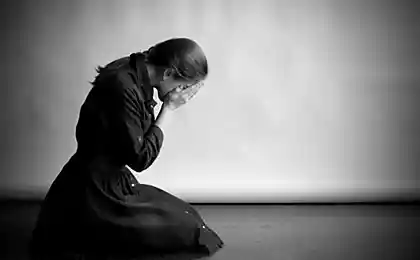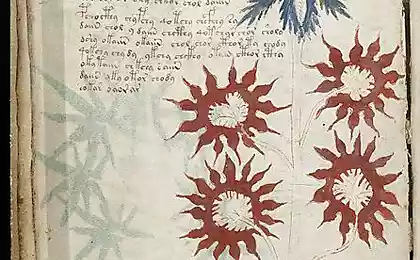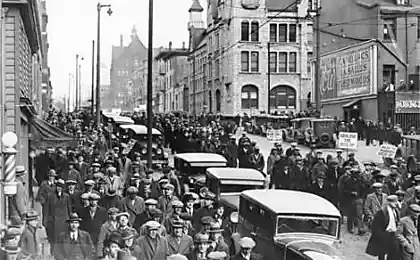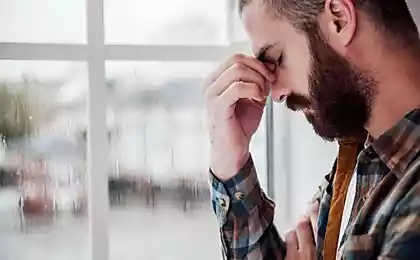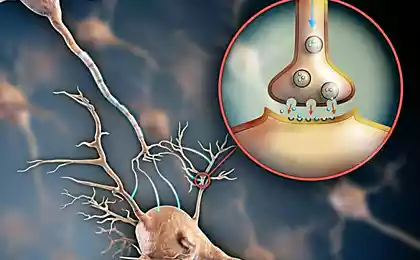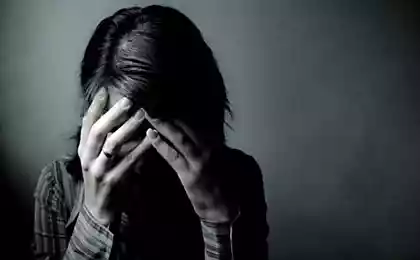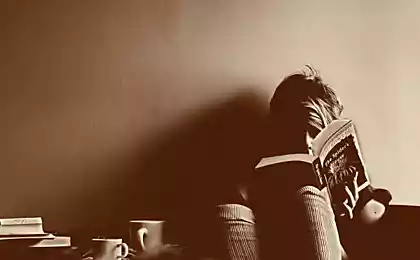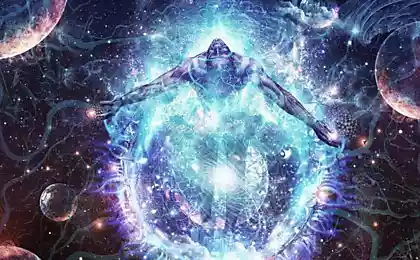610
How to use words to know whether a person is depressed
All that is needed - this color printer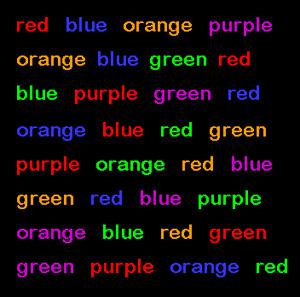
Depression changes the feelings of the people. Also, depression can change the thought, or to be more precise, the person will be given some thoughts attention. Psychologists have noticed that particular pun, namely that game, which is called the Stroop effect, apparently, has a peculiar effect on people suffering from depression.
Stroop effect - fairly well-known psychological phenomenon. Print a page of words, which words will be different colors. Word - the names of colors: red, blue, yellow. The idea is that the color should not match word. For example, the word "red" may be printed in green, and the word "yellow" let it be blue. And then ask the person to find all the words on the page, written in blue ink. What could be easier?
Yes, it will be easy, if the neutral words, such as "hours" or "Radio" - then the man quickly cope with the task. But if one sees the word "red" written in green, or the word "yellow", written in blue, make sure zapnёtsya. He seems that the word and the yellow and blue at the same time, and it will take a few moments to focus.
There is a variant Stroop effect, known as the emotional Stroop effect. A person is given the same task: the words printed on the page of a certain color. But instead of color names are written words that may come with the color of the ink in the emotional resonance.
A few words should be neutral, such as "table" or "sand", while others - the name of negative emotions. The man in the stall of depression when they see words like "failure" or "miserable", while the other person pay attention to these words are not more than neutral.
As with the conventional Stroop effect, people suddenly feel that these words need to pay attention and to assess whether everything is in order. Given the special incentives, people in depression or anxiety are concentrated not certain emotions that other people do not tend to, and can not focus on some thoughts.
via factroom.ru

Depression changes the feelings of the people. Also, depression can change the thought, or to be more precise, the person will be given some thoughts attention. Psychologists have noticed that particular pun, namely that game, which is called the Stroop effect, apparently, has a peculiar effect on people suffering from depression.
Stroop effect - fairly well-known psychological phenomenon. Print a page of words, which words will be different colors. Word - the names of colors: red, blue, yellow. The idea is that the color should not match word. For example, the word "red" may be printed in green, and the word "yellow" let it be blue. And then ask the person to find all the words on the page, written in blue ink. What could be easier?
Yes, it will be easy, if the neutral words, such as "hours" or "Radio" - then the man quickly cope with the task. But if one sees the word "red" written in green, or the word "yellow", written in blue, make sure zapnёtsya. He seems that the word and the yellow and blue at the same time, and it will take a few moments to focus.
There is a variant Stroop effect, known as the emotional Stroop effect. A person is given the same task: the words printed on the page of a certain color. But instead of color names are written words that may come with the color of the ink in the emotional resonance.
A few words should be neutral, such as "table" or "sand", while others - the name of negative emotions. The man in the stall of depression when they see words like "failure" or "miserable", while the other person pay attention to these words are not more than neutral.
As with the conventional Stroop effect, people suddenly feel that these words need to pay attention and to assess whether everything is in order. Given the special incentives, people in depression or anxiety are concentrated not certain emotions that other people do not tend to, and can not focus on some thoughts.
via factroom.ru
The book is without meaning and plot, but contains 2 sex scenes on the head, became a bestseller in 1960
As a blind person in one eye without damaging it
